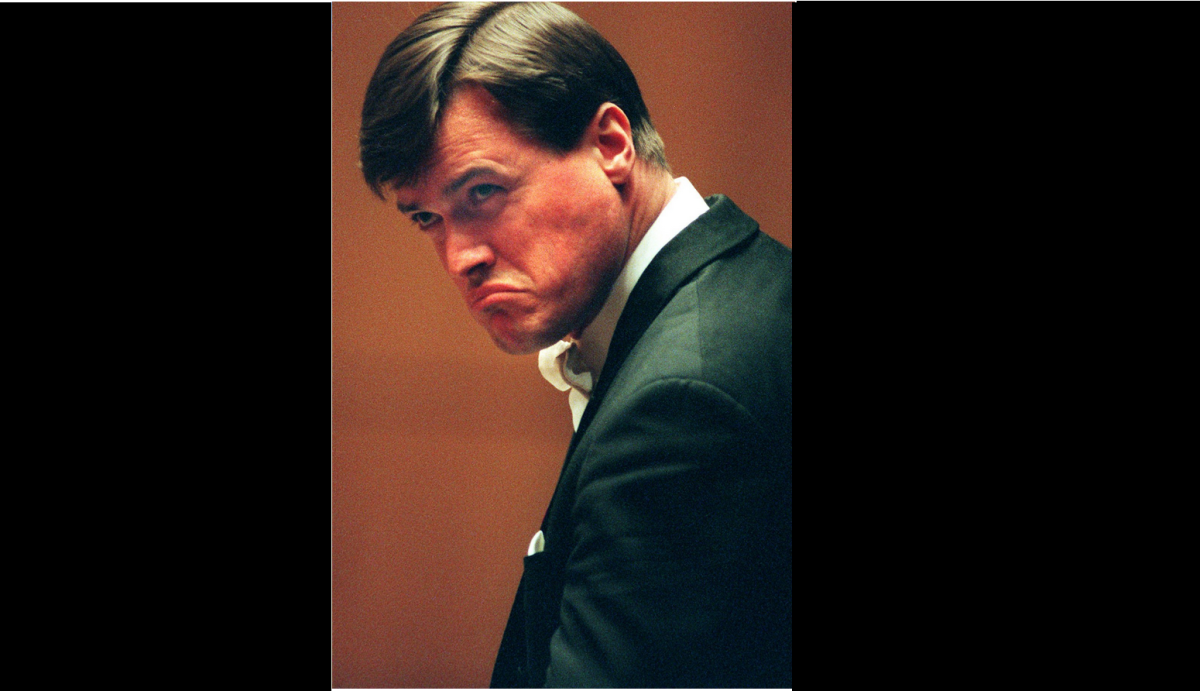Europe Concert Diary: A powerful, commanding Thielemann in Cologne

- Share via
Reporting from Cologne, Germany — The most admired of today’s German conductors, Christian Thielemann is said to be one of the two leading candidates to take over the Berlin Philharmonic when Simon Rattle leaves in four years. The other candidate appears to be Gustavo Dudamel.
They are night and day, reactionary and revolutionary, Old World and new, Apollonian and Dionysian. Tuesday night, the old school was in session when Thielemann brought the orchestra of the Dresden State Opera, which he heads, to the Cologne Philharmonie.
Tall, stiff, square-jawed with a slicked-down hairstyle that wouldn’t have been out of fashion in 1930s Berlin, Thielemann is every inch the maestro. And though once a regular guest conductor in the United States, he has little presence in the States, some say because of his conservative political views. (He last conducted the Los Angeles Philharmonic 18 years ago).
But in the hard-core German repertory, in Beethoven and Brahms, in Wagner, Bruckner and Strauss, Thielemann can be exceptionally impressive.
Bruckner’s unfinished Ninth Symphony was on the Dresden program, and it was treated to the power, majesty, sweep, depth and more power for which Thielemann is known.
His podium manner is not graceful. He seems not a collaborator but a commander. In the first movement, he was like the captain of an icebreaker cutting through a huge Brucknerian glacier. He sacrificed the Scherzo as if manning heavy artillery. For the Adagio, the last movement Bruckner completed, Thielemann all but controlled the weather, reaching a magnificent climax that might have shattered glass.
The surprise of the night was that the concert began with Sofia Gubaidulina’s “In tempus praesens” (her second violin concerto), a surprise given that Thielemann has little reputation for the adventure of new music.
The half-hour concerto was written in 2007 for Anne-Sophie Mutter. Soloist Gidon Kremer, who was responsible for first introducing the Russian composer to the West more than 30 years ago, has now taken it on.
The score is a spiritual response to Bach, and the performance was gripping, not only for Kremer’s transcendent concentration but also for Thielemann’s careful attention to sonic detail.
But back to Bruckner. Earlier in the day, I listened to Dudamel’s recording of the Bruckner Ninth, which was taken from a live concert with the Gothenburg Symphony a few years ago. It was not a fair comparison. Not only was it the first time Dudamel conducted the Bruckner Nine, it was his first Bruckner. The performance was inevitably more on the surface than Thielemann, he being an avid Brucknerian.
Ultimately, it was no comparison at all, so different are these approaches. Dudamel’s Ninth, on that first outing, was one of an enthusiastic conductor sharing the enchantment of a discovery. Thielemann was revealing the word from on high.
If Thielemann and Dudamel are, indeed, the frontrunners (Andris Nelsons, the 36-year-old Latvian conductor who has just become the music director of the Boston Symphony, has lately been rumored a dark horse), the choice for Berlin is very clear.
With Thielemann, the orchestra would likely fossilize into another great Berlin monument to the tradition of German high and highest art. With Dudamel it would represent the future.
There was something else about Tuesday that might be the clincher. For all his regard, Thielemann failed to sell out a 2,000-seat house; a quarter of the seats were empty and most were in the less expensive sections, which is not a good sign about attracting new audiences.
That is not likely to be the case next week, when Dudamel comes to Cologne with the Vienna Philharmonic, as part of his six-week touring schedule with the orchestra.
More to Read
The biggest entertainment stories
Get our big stories about Hollywood, film, television, music, arts, culture and more right in your inbox as soon as they publish.
You may occasionally receive promotional content from the Los Angeles Times.











